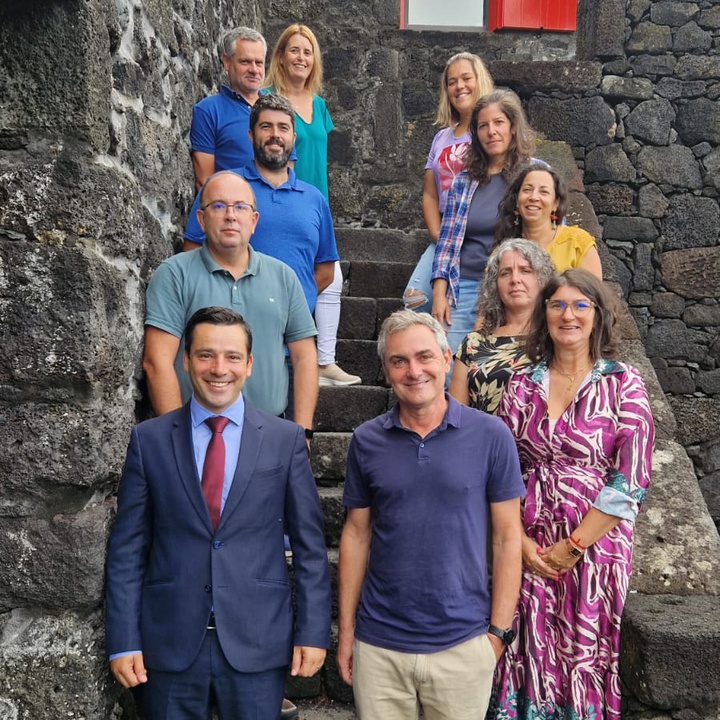Text size:
News

Regional Secretariat for the Environment and Climate Change joins international project to develop new solutions for protected area management
Oct. 31, 2023
The Regional Secretary for the Environment and Climate Change, Alonso Miguel, recently signed a partnership protocol for nature conservation on the island of Pico.
According to the Regional Secretary for the Environment, the project in question, "Business for Nature," is managed by Nature Returns in partnership with the Regional Secretariat for the Environment and Climate Change. It "seeks innovative solutions for the financing and management of Protected Areas, through the inclusion of entrepreneurial businesses representing solutions to support the management of these areas."
"The project is based on the analysis of the conservation problems of protected areas, which are common throughout the world, covering everything from the lack of resources needed for effective management of these areas to the difficulty in raising sufficient funds for their management. It also addresses the distancing between the management of Protected Areas and the communities living there," he emphasised.
Alonso Miguel explained that this project, funded by the Hoffmann Foundation, aims to contribute to the management and financing of Protected Areas, through the development of Management Plans using the Conservation Standards methodology. It has been adapted to include businesses that bring management solutions, creating mutual benefits between the administration of these areas, the communities living there and the entrepreneurs of these businesses.
This innovative methodology will be tested and implemented in five protected areas in Europe and Africa, including the Pico Island Natural Park in Portugal, the Lonsjko Polje National Park in Croatia, the Ulcinj Natural Park in Montenegro, the Shar National Park in Macedonia and the Obô do Príncipe Natural Park in São Tomé and Príncipe.
"The project is led by the Nature Returns consultancy firm in partnership with the Regional Secretariat for the Environment and Climate Change, the EuroNatur Foundation, the Príncipe Foundation and the company Connectology," he stressed.
The Regional Secretary emphasised that "the project has as its main goals the training of technicians, the development, assessment and monitoring of management plans for Protected Areas, and the promotion of businesses with the potential to support the management of Protected Areas."
"The project kicked off on the island of Pico in late September at the premises of the Pico Island Environmental and Climate Change Service in Lajido de Santa Luzia. The first action involved the training of technicians from the Pico Island Nature Park and the Protected Areas Department of the Regional Directorate for the Environment and Climate Change on the methodology to be applied," he said.
Alonso Miguel praised the fact that the Azores were part of an international project to create an innovative methodology for managing protected areas. In this context, he revealed that "the participation of the Regional Secretariat for the Environment and Climate Change is aimed at using this project to train our teams with a modern tool that can be harnessed to assess and improve the current Management Plan for the Pico Island Nature Park."
Furthermore, the government official added that "apart from helping to solve conservation problems, the aim is also to generate more wealth and bring communities closer to their protected areas."

